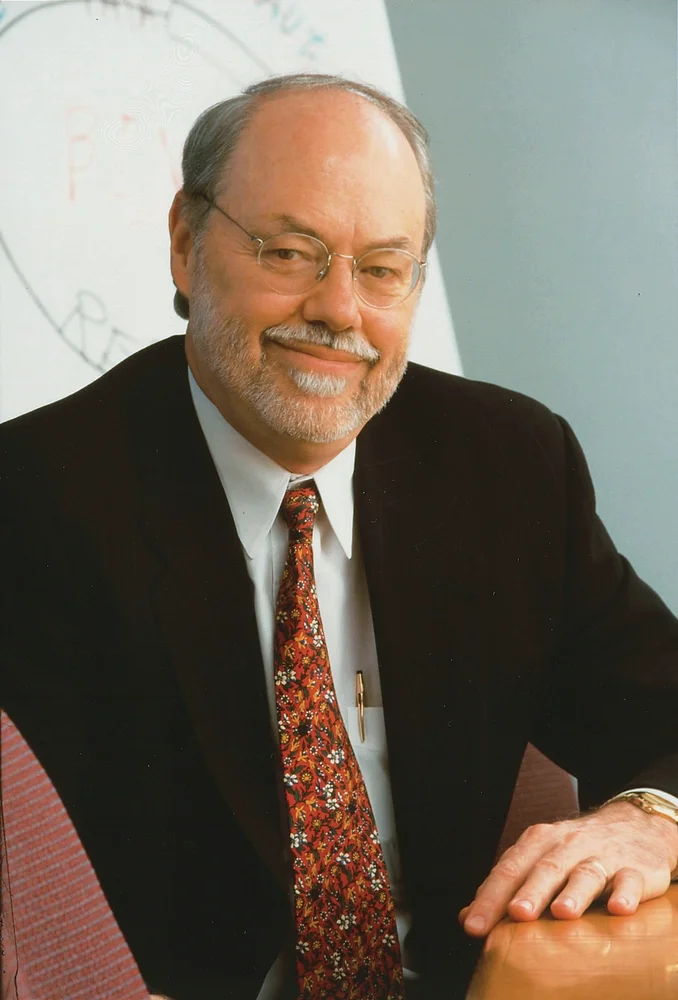
The central theme running through the achievements of Dr. Phillip Sharp (PhD, '69, chemistry) is their vast impact on the direction of research in molecular biology and biochemistry. From his revolutionary discovery that gene sequences may be interrupted by noncoding "nonsense" stretches of DNA called introns—a landmark discovery in understanding how biological information is organized that was recognized with the Nobel Prize in Physiology or Medicine for 1993 (shared with Dr. Richard A. Roberts)—to his current research on RNA interference, Sharp's work has had far-reaching implications for biology and medicine.
A true giant in the field of modern molecular biology, Sharp is a native Kentuckian who stayed close to home to do undergraduate work in chemistry and mathematics at Union College. From there, as related in his biography, "Dr. Dan Foote encouraged me to apply to the Department of Chemistry at Illinois. This old and distinguished department must have recognized some hidden promise as I was offered a fellowship and soon began graduate studies under Victor Bloomfield in physical chemistry, an excellent mentor who encouraged both my scientific and cultural growth."
Encouraged indeed, he went on to do groundbreaking research on the molecular biology of tumor viruses, generating the first map of an adenovirus, a class of viruses that are common causes of respiratory and other infections in humans. In 1978, Sharp founded the world's oldest independent biotechnology company, Biogen, a global leader in developing drugs for health care through genetic engineering.
Yet it is his Nobel-recognized discovery of introns for which Sharp is best known. Genes are arranged in pieces along chromosomes and then copied into molecules called messenger RNA, which must then be processed to be made "legible." The way in which this processing occurs, called RNA splicing, is what Sharp first described. It helped show how the genes of viruses, as well as humans, encode proteins. Says Thomas B. Rauchfuss, director of the College of LAS' School of Chemical Sciences, "It is a discovery so fundamental in its implications that it is the stuff of elementary molecular genetics and, as a result, can be found in all the textbooks."


